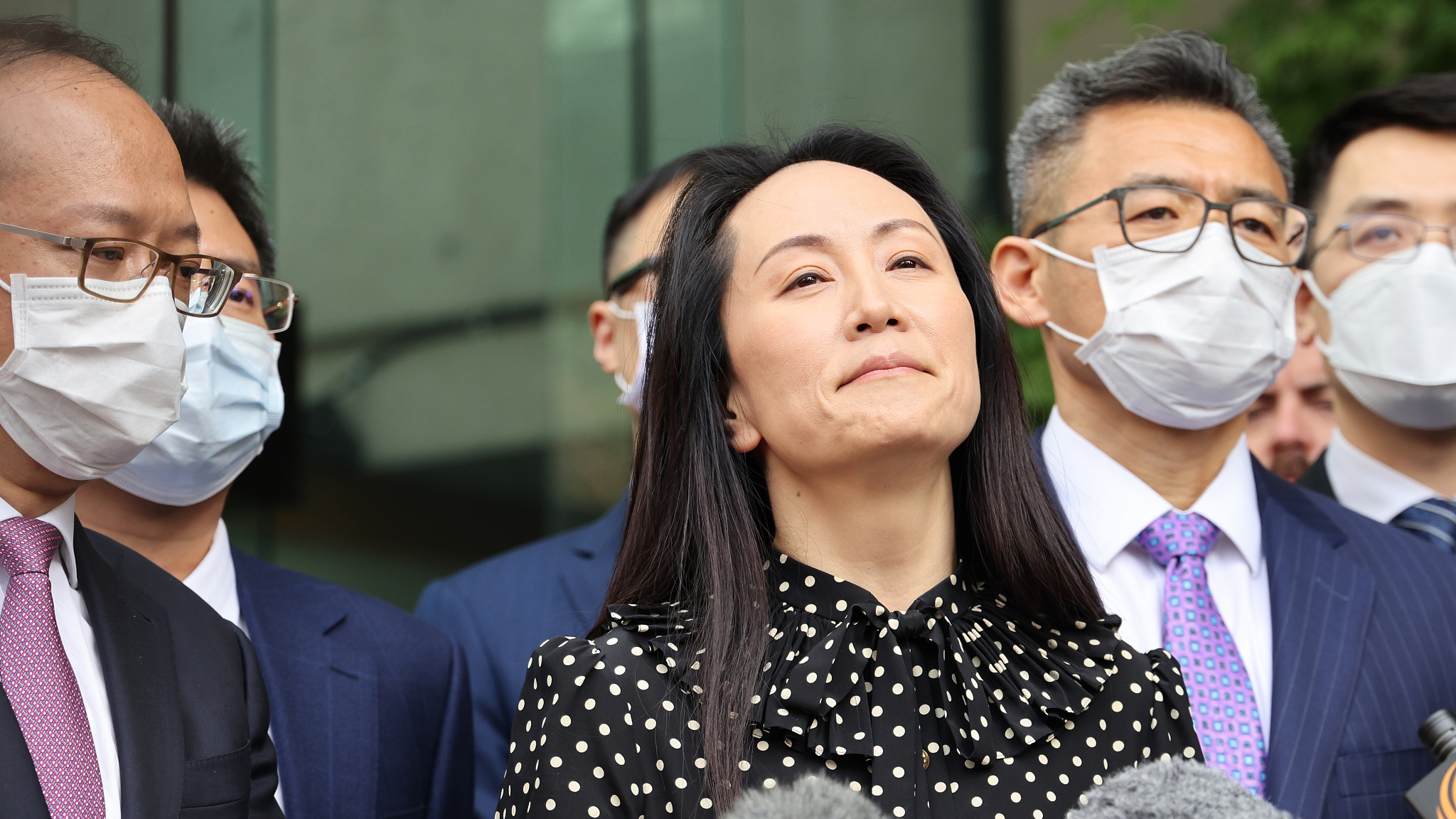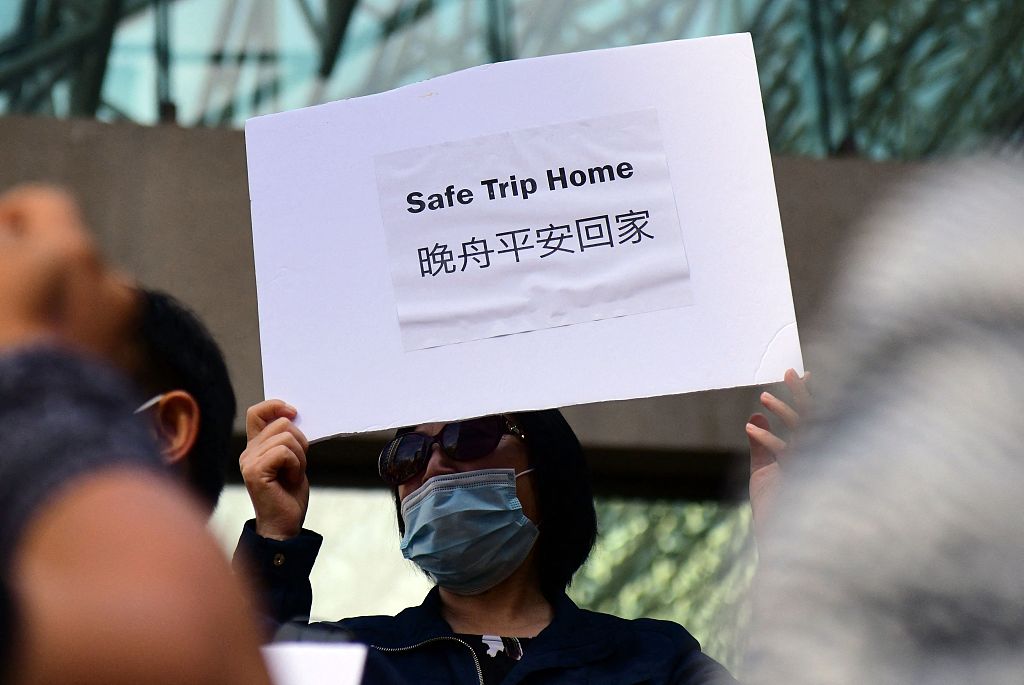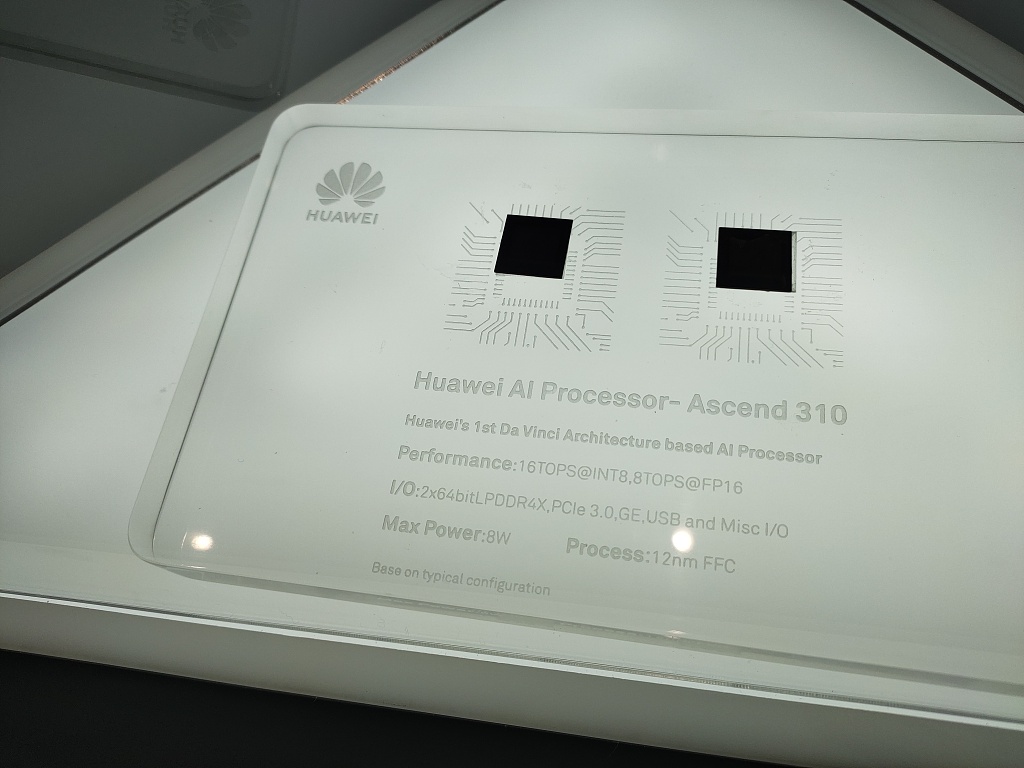02:51

After nearly three years of being under house arrest in Canada, Huawei executive Meng Wanzhou and her legal team reached a deal with the U.S. Justice Department on Friday which allowed her to return to China.
The moment marked the end of a lengthy legal and political saga which took place amid rising tensions between Beijing and Washington.
Shortly after the deal was reached, Meng boarded a government-chartered Air China flight headed to the southern Chinese city of Shenzhen where Huawei is based. She landed at the city's airport Saturday evening. According to Xinhua News Agency, this is the result of unremitting efforts by the Chinese government.
"Over the past three years, my life has been turned upside down. It was a disruptive time for me as a mother, a wife and a company executive. But it really was an invaluable experience in my life," she said. "I will never forget all the good wishes I've received from people around the world. As the saying goes, the greater the difficulty, the greater the growth."
Meng, 49, has not pleaded guilty to fraud charges. Under the agreement, she will not be prosecuted further in the U.S. and the extradition proceedings in Canada will be terminated, according to a statement released by William Taylor III, one of the lawyers representing Meng.
"Facts have already proven that this is a political persecution against a Chinese citizen and its aim is to suppress Chinese high-tech companies," said China's Foreign Ministry spokesperson Hua Chunying on Saturday.
On December 1, 2018, Canadian authorities arrested Meng at the request of the U.S. government which accused her of wire fraud and sought her extradition. The incident took place as the Trump administration adopted an aggressive approach in dealing with China on a variety of issues including trade and technology.
Four months before Meng's arrest, the U.S. government fired the opening salvo against Chinese high-tech companies by issuing a ban on the federal government use of products by Huawei and ZTE – two leading Chinese providers of telecom equipment, citing national security concerns. The following year, Huawei was added to the U.S. Commerce Department's Entity List, which effectively banned American companies from doing business with the Chinese tech giant.
Amid the frictions between the Trump administration and Beijing, Meng's arrest at the hands of the Canadian government quickly ignited the fury of the Chinese public, many of whom took to social media to express their anger at and distrust of Canada's legal system.
Since August 18, 2021, nearly 15 million people from over 100 countries including the U.S., the UK, Australia and Canada have signed a petition launched by the Global Times newspaper along with an open letter sent to the Canadian Ambassador in China Dominic Barton, demanding Meng's immediate and unconditional release.

People hold signs supporting Huawei's CFO Meng Wanzhou at British Columbia Supreme Court after her extradition hearing ended in her favor, in Vancouver, British Columbia, Canada, September 24, 2021. /CFP
People hold signs supporting Huawei's CFO Meng Wanzhou at British Columbia Supreme Court after her extradition hearing ended in her favor, in Vancouver, British Columbia, Canada, September 24, 2021. /CFP
Why now?
Over the past three years, Meng's detention has been a thorny issue between Beijing and Washington. Tensions that were unfathomable years ago have taken an incendiary crescendo.
There are two factors that facilitated the release of the Huawei CFO, according to Guo Changlin, a former senior diplomat at the Chinese Embassy in the U.S.
"U.S. President Joe Biden is looking to meet with his Chinese counterpart Xi Jinping at the G20 summit due to be held in Rome in end-October. [Also] Justin Trudeau has just been re-elected as Canadian prime minister [by a narrow margin] and is eager to fling off Meng's case, which after all is a prolonged bone of contention between China and Canada," Guo told CGTN during a phone interview.
Despite Washington's hardline China policy, Biden himself developed a close relationship with Xi when the two were vice presidents. Biden has been to China four times and the two met 11 times in person, noted Li Cheng, director of the John L. Thornton China Center at the Brookings Institution.
"My point was that when I came back from meeting with him and traveling 17,000 miles with him when I was vice president and he was the vice president – that's how I got to know him so well," Biden remarked during a February town hall meeting.
"They have a personal friendship but how far Biden could go in light of nationwide anti-China sentiments remains to be seen," said Guo, also a senior research fellow with the Taihe Institute.
Li believes that Biden has to flex his muscles since every move he makes is aimed at gaining support from a voter base embracing the anti-China messaging. "He's not that confrontational himself," he added.
The Biden administration doesn't want to see China-U.S. competition spiraling out of control. U.S. government officials stressed on various occasions that they did not seek conflict with Beijing.

A Huawei chip is displayed at the company headquarters in south China's Shenzhen, August 23, 2019. /CFP
A Huawei chip is displayed at the company headquarters in south China's Shenzhen, August 23, 2019. /CFP
What does Meng's release mean to China-U.S. ties?
The deal which allowed Meng to return to China shows Washington's attempt to prevent the stiff competition from veering into a conflict, but it falls short of being a reversal in bilateral tensions, according to Guo.
The charges against Huawei remain in place, and the tech giant is still on the U.S. blacklist. The next 14 months, by the end of which the indictment will be fully dismissed, are not without risks.
The tech war is brewing, Huawei and other high-tech companies will probably face more scrutiny. The U.S. pioneered the third industrial revolution after two world wars tanked the European economy. Over the decades, it's been at the very top of the pyramid, leading the world with sophisticated technology. However, material abundance decoupled from human labor has left many problems unsolved. China and the U.S. have become fierce contenders in the fourth industrial revolution, which is dominated by chips and algorithms.
The White House listed China as "the only competitor potentially capable of combining its economic, diplomatic, military, and technological power" in its Interim National Security Strategic Guidance. A hawkish China policy has become a consensus between Republicans and Democrats despite their deepening feud at home.
For many veteran observers of bilateral ties, the engagement policy that dominated Beijing-Washington relations for nearly 50 years has been whisked to a bygone era, giving way to rising tensions.
"The end of the engagement era could date back to 2010 when China surged to be the world's second-largest economy," said Guo. He felt the shift in Washington's attitude toward Beijing between 2010 and 2012 when he worked at the Chinese embassy in the U.S. When China's GDP exceeded 60 percent of that of the U.S. in 2014, hostility grew, with containment policies ranging from trade to human rights over the years.
Washington's attempt to contain Beijing in the high-tech realm predates Donald Trump's trade war and continues to this day.
"A high-tech decoupling is looming but Meng's release may help with bilateral cooperation in lower-end tech areas," noted Guo.
(Zhao Yue contributed reporting; video by Li Yahui and Lan Haowei)

